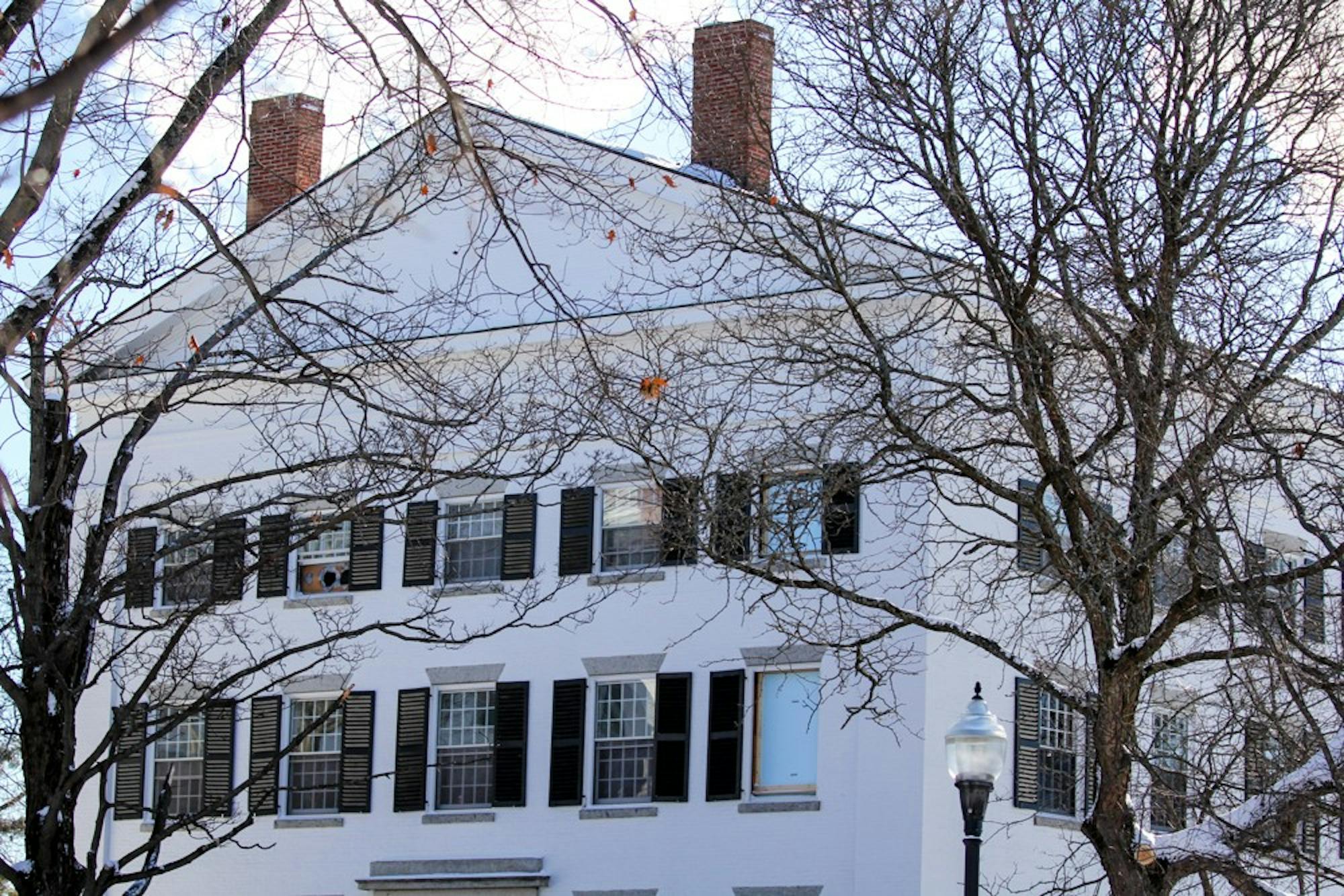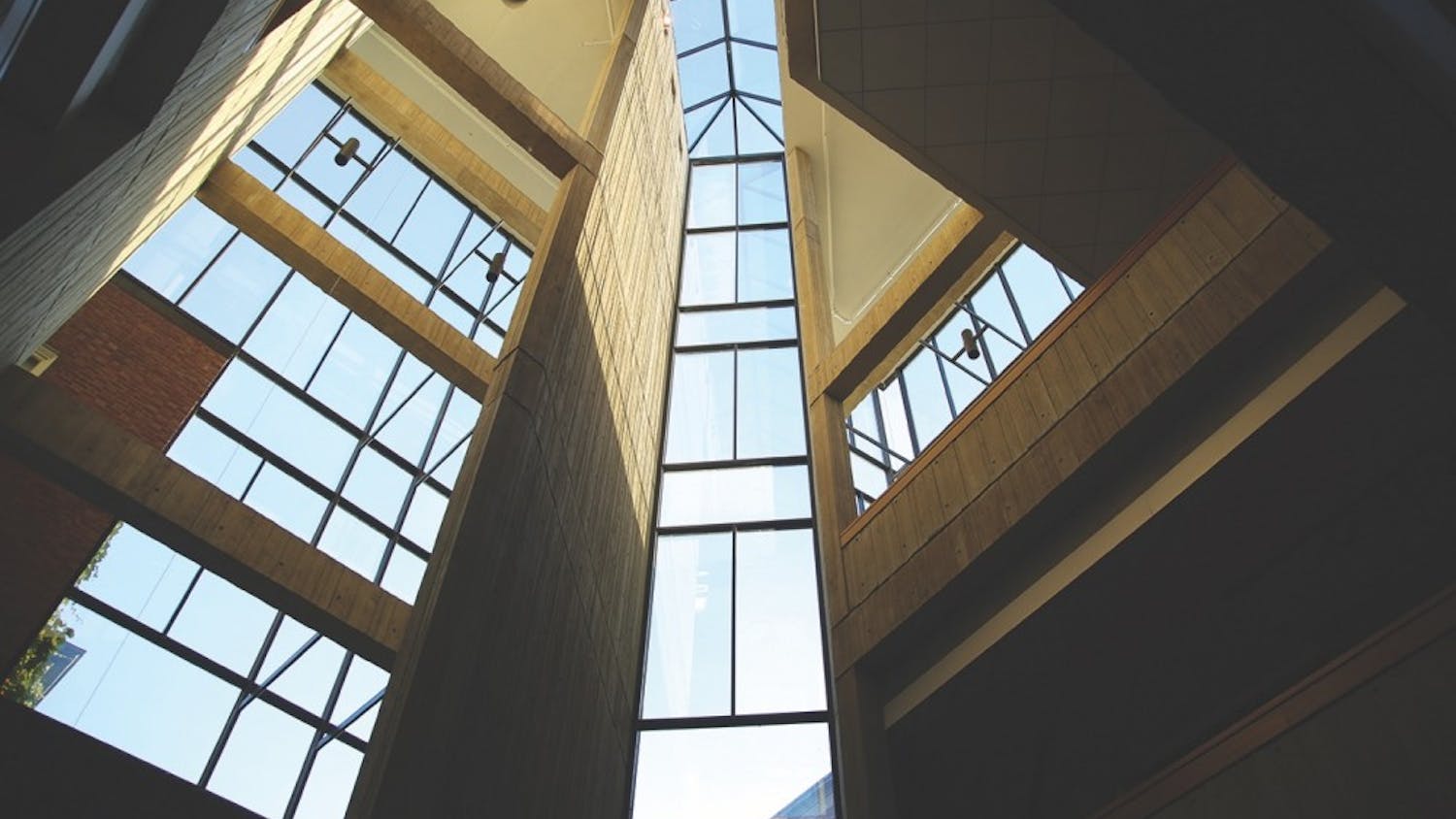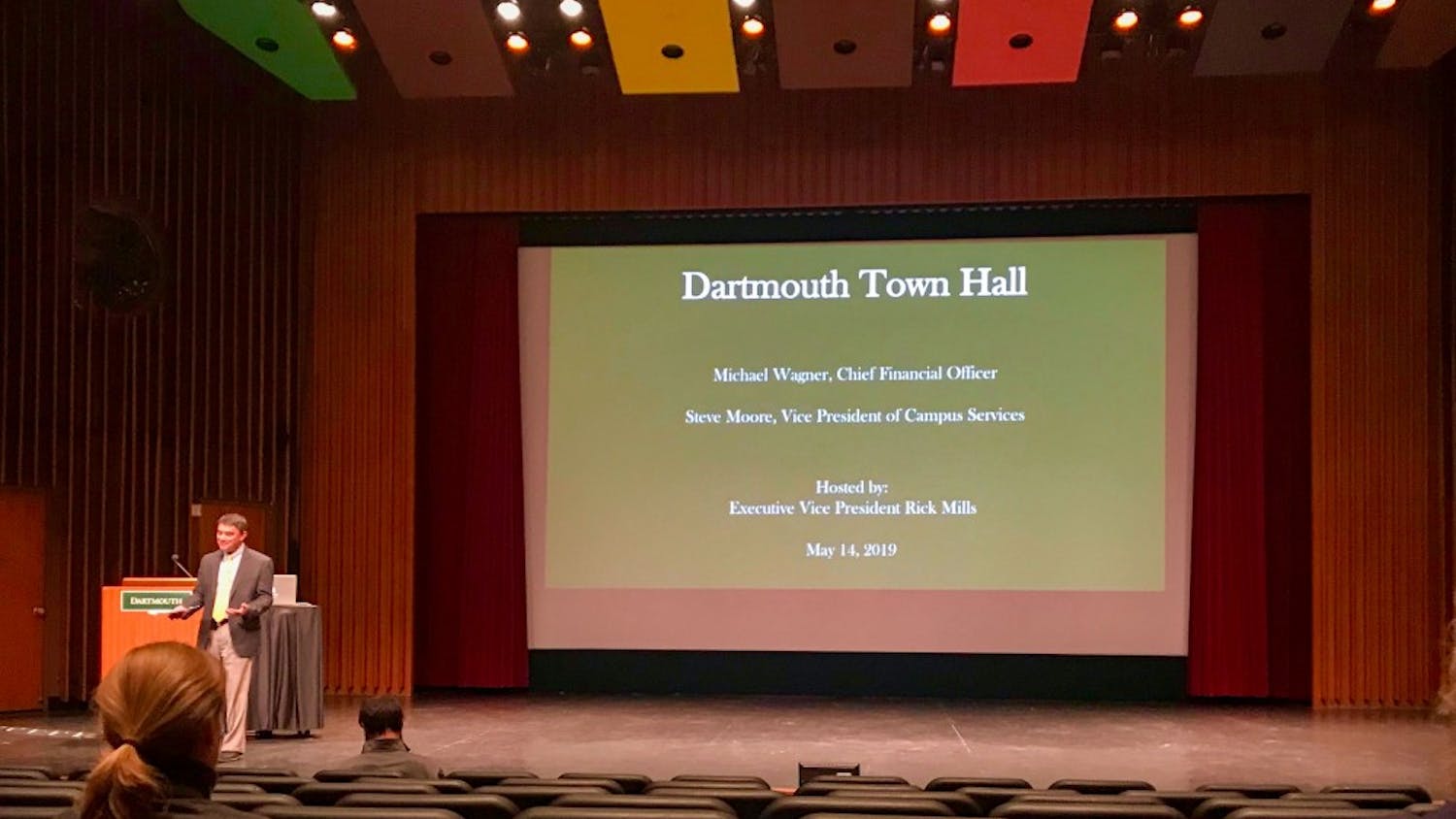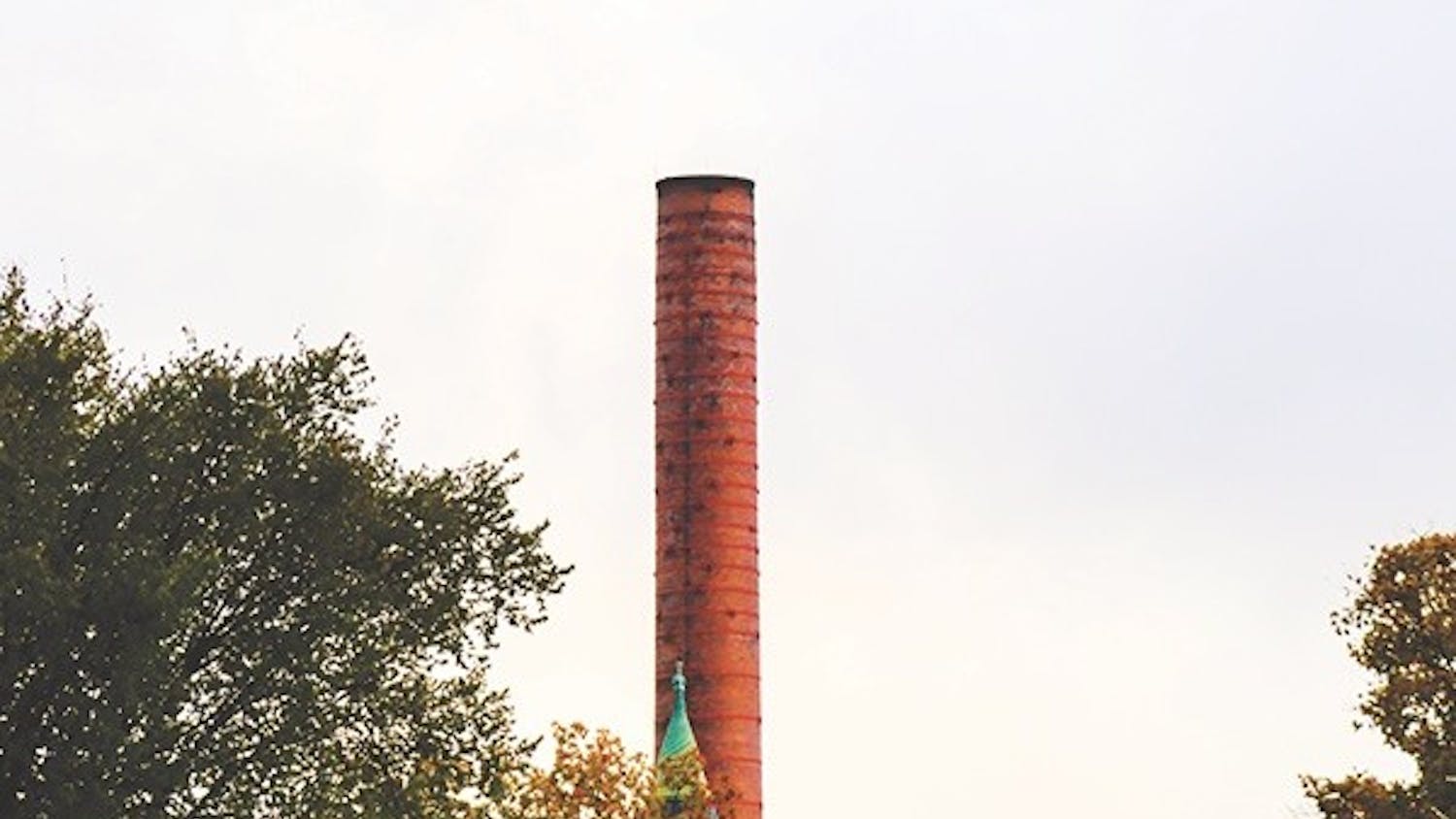The 179-year-old Reed Hall is currently undergoing a full renovation that will see the addition of an elevator, heating system upgrades, air conditioning, new electric lines and increased entrance and restroom accessibility, as well as a completely renovated interior.
According to Capital Renewal Program manager Patrick O’Hern, the upgrades to Reed Hall comprise the first major renovation of the building at Dartmouth since the 1920s. He added that much of the exterior renovation occurred over the past winter break, when the renovation commenced. Further upgrades to the building include the installation of a full-coverage sprinkler system and a refurbishment of existing window systems.
The College is contracting Lee Kennedy Construction out of Quincy, MA to renovate the building, according to O’Hern.
O’Hern added that the building was identified by the Provost’s office a few years ago as a priority for renovation due to a combination of the length of time that has passed since the previous renovation as well as the building’s historical significance.
Unlike residential halls, which are subject to change in function and capacity based on Dartmouth’s master plan, Reed Hall — much like the other buildings on College Street — will likely remain a constant, O’Hern said. Following the renovation of Reed Hall, other buildings on College Street are likely to be renovated next, according to O’Hern. Thornton Hall will be renovated over the same time frame starting in December of this year. Plans to renovate Dartmouth Hall have been at the center of the Call to Lead capital campaign as a major project to fund.
O’Hern noted that because the College did not “want to change the external look of the building,” it was necessary to remove some office spaces to accommodate the construction of the elevator.
Reed Hall has previously housed several departments, including classics, cognitive science, linguistics and Russian. The beginning of work on Reed Hall coincided with the completion of work on Dana Hall, which is currently housing those departments. With the exclusion of linguistics, which will remain in Dana, these departments will move back into Reed in early August when the renovation is complete, O’Hern said.
Linguistics and classics professor Lindsay Whaley, who has had an office in Reed Hall since 1993, said that he will not be returning to Reed Hall once the renovation concludes. He added that for a lot of his colleagues in the linguistics department, the newly renovated Dana Hall offers “bigger and better offices,” as well as the Ramekin Cafe, which opened this week.
Whaley noted that the second floor of Dana Hall will remain “a swing space” even after the renovation of Reed Hall is complete, as the renovations of other campus buildings will continue to disrupt traditional office locations.
Russian department administrator Thomas Pike said that he was housed in Reed Hall for a year and a half before the move to Dana Hall. He described the transition as being “smooth” and added that the faculty has been “fairly pleased” throughout the transition period.
“We are just a little bit nervous just because we have been in Reed hall for so long,” Pike said, before adding that he supported the proposed changes thus far.
Pike described Reed as a “second home” for many members of the Russian department and expressed excitement to see the finished product.
Construction is scheduled to be completed in July.




